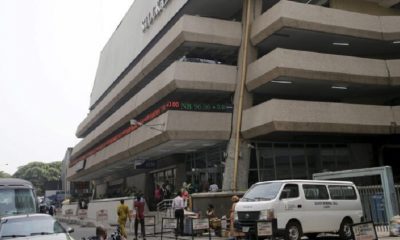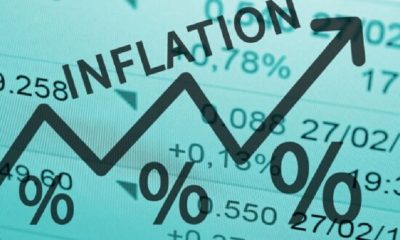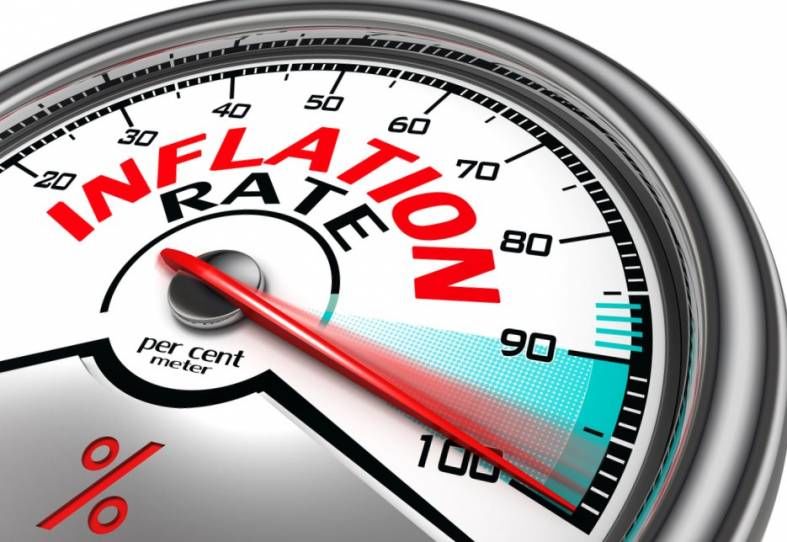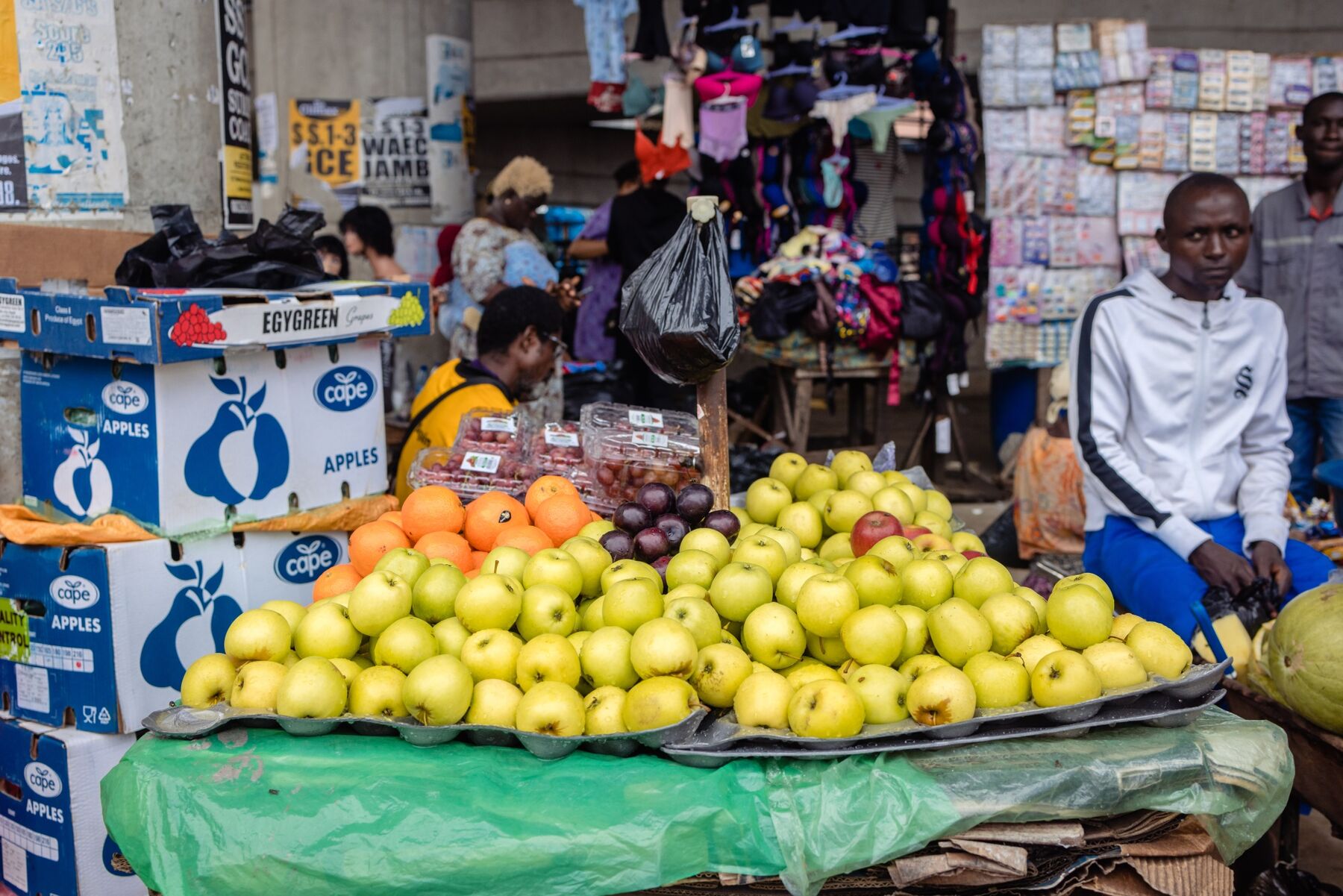Feature/OPED
NBS and Scorecard of Eclipsing Administration

By Jerome-Mario Chijioke Utomi
With a few days to the May 29 inauguration of the new administration in the country, it is glaringly evident that President Muhammadu Buhari-led Federal Government of Nigeria has successfully completed its constitutional two terms of eight years. Though there exists no codified, metered or iron-cast way of assessing the administration’s performance, it is, however, assumed that an administration that spanned eight years must have milestone(s) of achievement to point at.
Indeed, while there are flicker and recognizable flashes of achievements in some sectors of the nation, interim particulars, in my view, suggest that infrastructural provision is the administration’s greatest accomplishment.
The crucial point, then, is how does one define what constitutes infrastructural success and how was it achieved? What are/were the opportunity cost of the purported success?
In February 2021, President Buhari reportedly established the Infrastructure Corporation of Nigeria (InfraCorp), with an initial seed capital of N1 trillion, provided by the Central Bank of Nigeria (CBN), the Nigerian Sovereign Investment Authority (NSIA) and the Africa Finance Corporation (AFC). InfraCorp was also expected to mobilize an additional N14 trillion of debt capital.
Through InfraCorp, Buhari catalysed and accelerated investment into Nigeria’s infrastructure sector via originating, structuring, executing and managing end-to-end bankable projects in the country,
Today, the administration has to its credit 56km Lagos-Ibadan Standard Gauge Rail completed and commissioned within a Nigerian-record-time of 4 years (2017 to 2021); 186km Abuja-Kaduna Standard Gauge Rail Line completed and commissioned in 2016; 327km Itakpe-Warri Standard Gauge Rail completed and commissioned in 2020, 33 years after construction began.
Also, the administration, going by media reports, invested over a billion dollars in three flagship projects: Lagos-Ibadan Expressway (for completion in May 2023), Second Niger Bridge (for completion in May 2023), Abuja-Kaduna-Zaria-Kano Expressway (two of three sections for completion in May 2023), among others.
Even when this piece holds the opinion that the administration demonstrated an understanding of the pivotal role infrastructural provision plays in providing society with the services that underpin the ability of people to be economically productive, it will, on the other hand, objectively qualify the aforementioned achievements as sparse and insufficient, particularly when juxtaposed with a catalogue of adequately unattended sectors (education, security, Power, Niger Delta region labour and employment etc.).
In fact, each time I reflect on President Buhari’s eight-year administration, the fears expressed by a friend in 2015 about the present administration come flooding.
Adding context to the discourse, my friend, amidst euphoria triggered by the declaration of the 2015 presidential election result, cautioned me with these few words; “men will change their ruler expecting to fair better; this expectation induces them to take up arm against him, but they only deceive themselves, and they learn from experience that they have made matters worse.”
Still, in that milieu, I had reminded him that the result ushered in a season of integrity in the country, and he again replied thus; “no single attribute could be identified as a virtue. Remember,” adding that, “Politics has its own rules.”
Eight years after that conversation, I cannot categorically say that my friend was right or wrong in his prediction. But the present instinct in the country explains two things; first, apart from the fact that the shout of integrity which hitherto rend the nation’s political space has as the light faded, jeer has since overtaken the cheers of political performance while fears have displaced reason -resulting in an entirely separate set of consequences – irrational hatred and division.
The reason for this spiralling feeling is understandable!
Take, as an illustration, in 2020 alone; there were outright abridgements of the masses’ welfare by the federal government via the increase of Value Added Tax (VAT) from 5 per cent to 7.5 per cent, re-introduction of Stamp Duty Charge, re-introduction of Stamp Duty on house rents and C of O transactions, electricity and petrol price hikes crisis among others. These were inextricably linked both in their causes and solutions.
Each of these challenges has its roots in the administration’s payment of little attention or lip service to expert warnings about the poor state of the economy, and further fed by the federal government’s persistent formulation of policies with no clear definition of the problem, the goals to be achieved, or the means chose to address the problems and to achieve the goals; adoption of coquettish tactics that make the masses fall in love with excitement while they (leaders) remain inwardly detached; keeping them in control.
There are very recent examples.
According to a recent report by the National Bureau of Statistics (NBS), it stated that in April 2023, the headline inflation rate rose to 22.22% relative to March 2023 headline inflation rate, which was 22.04%. Looking at the movement, the April 2023 inflation rate increased by 0.18% compared to the March 2023 headline inflation rate.
Similarly, on a year-on-year basis, the headline inflation rate was 5.40% points higher compared to the rate recorded in April 2022, which was 16.82%. This shows that the headline inflation rate on a year-on-year basis increased in April 2023 compared to the same month in the preceding year (i.e., April 2022).
Likewise, the report added that on a month-on-month basis, the All-Items Index in April 2023 was 1.91%, 0.05% higher than the rate recorded in March 2023 (1.86%). This means that in April 2023, on average, the general price level was 0.05% higher relative to March 2023. The percentage change in the average CPI for the twelve months ending April 2023 over the average for the previous twelve months was 20.82%, showing a 4.37% increase compared to the 16.45% recorded in April 2022.
While the above qualifies as an occurrence that its pain is deepened by the fact that it was avoidable, it is important to underline further that if there is a particular area where the present administration cannot boast of clean hands, it is in the incessant debt accumulation(foreign and domestic).
It is common knowledge that in January 2023, Patience Oniha, the Director-General of the Debt Management Office (DMO), while fielding questions from journalists at the public presentation and breakdown of the highlights of the 2023 Appropriation Act in Abuja, noted that the incoming federal government would inherit about N77 trillion as debt by the time President Muhammadu Buhari’s tenure ends in May.
Aside from signalling an indication that Nigerians should expect a tough time ahead or, better still, may not anticipate a superlative performance from the incoming administrations as they will, from inception, be overburdened by debt, what is, however, ‘newsy’ is that each time the present federal government went for these loans, Nigerians were usually told that the loan seeks to stimulate the national economy, making it more competitive by focusing on infrastructural development, delivery of inclusive growth and prioritizing the welfare of Nigerians to safeguard lives and property; equipping farmers with high tools, technology and techniques; empowering and enabling mines to operate in a safe and secured environment and training of our youths through the revival of our vocational institutions to ensure they are competitive enough to seize the opportunities that will arise for this economic revival.”
Again, it is evident from the above that the nation did not arrive at its present state of indebtedness by accident but through a well-programmed plan of actions and inactions that engineered national poverty and bred indebtedness. The state of affairs dates back to so many years in the life of the present federal government.
As noted in my recent and similar intervention, the nation was warned with mountains of evidence that this was coming; it was also pointed out that under the present condition of indebtedness, it may be thought audacious to talk of creating a better society while the country battles with the problems of battered economy arising from indebtedness, yet, our leaders who are never ready to serve or save the citizens ignored the warnings describing it as a prank. Now we have learnt a very ‘’useful’’ lesson that we can no longer ignore.
In 2019, the rising debt profile of the country dominated discussion when the Senate opened debate on the general principles of the 2019 Appropriation Bill. Most of the contributors to the referenced debate asked the executive to exercise some level of caution on its borrowing plan to not return the country to a heavily indebted nation it exited in 2005 through Paris Club debt relief.
Senate Leader, Mr Ahmed Lawan (as he then was), kicked off the debate when he read, “A Bill for an Act to authorize the issue from the Consolidated Revenue Fund of the Federation the total sum of N8,826,636,578,915 only, of which N492,360,342,965 only, is for Statutory Transfers, N2,264,014,113,092 only, is for Debt Service, N4,038,557,664,767 only, is for Recurrent (Non-Debt) Expenditure while the sum of N2,031,754,458,902 only is for contribution to the Development Fund for capital Expenditure for the year ending on 31st day of December 2019.”
While noting that the budget deficit will be funded through borrowing, Lawan, among other things, stated, “About 89% of the deficit (N1.65 trillion) will be financed through new borrowings while about N210 billion is expected from the proceeds of privatization of some public enterprises. Debt Service/Revenue Ratio, which was high as 69% in 2017, has led to concerns being raised about the sustainability of the nation’s debt.”
Reacting to Lawan’s words, many Nigerians raised the alarm about the country’s rising debt profile. They noted that though the budget estimates should be given expeditious consideration and passage in view of the time already lost, the borrowing plan contained in the Bill should be properly scrutinized. They insisted that scrutinizing the borrowing plan became necessary to prevent the country from exceeding its borrowing limit when juxtaposed with the ratio of Gross Domestic Product (GDP).
Even some Senators, in their submissions, frowned at the nation’s increased borrowing proposals on our yearly budget, which they described as becoming unbearable.
“Yes, money must be sought by any government to fund infrastructure, but it must not be solely anchored on borrowing, which in the long run, will take the country back to a problem it had earlier solved.
“Besides, there are other creative ways of funding such highly needed infrastructure.”
Others at that time were particularly not happy that the debt profile of the country would soon rise to $60 billion from less than the $20 billion it was before the present government came to power in 2015. While they noted that the components of the $60 billion debt profile include $23 billion external debt and $20 billion local debts, these concerned Nigerians observed with dissatisfaction that another $12 billion was already being processed for presentation to the National Assembly to finance Port Harcourt to Maiduguri rail lines.
Still, on the 2019 budget borrowing proposal, it noted that “Nigeria is gradually turning to a chartered borrowing nation under this government all in the name of funding infrastructure. “This must be stopped because the future of the country and, in particular, lives of generations yet unborn are being put in danger.” Even with the high level of indebtedness of the country, “the government in power is planning to further devalue the Naira to about N500 to one US dollar,” they concluded.
Similarly, in February 2022, Economic experts going by media reports urged the federal government to seek a debt moratorium and reduce the cost of governance to reduce funds expended on debt servicing, as it stands as the best available option.
This, according to them, will enable the government to suspend payment for now and re-strategize – particularly, the government cannot continue to service its rising debt profile at the expense of meeting the competing needs of the people, a similar expert warning was recently handed by economic analysts that the federal government’s soaring borrowings could eventually suffocate the country if not mitigated.
Indeed, from the above torrents of explanation/concern expressed by these experts, this piece clearly agrees that ‘Nigeria’s debt stock has finally become an issue that calls for a more drastic approach to support the fiscal and monetary authorities to tow the nation’s economy out of the doldrums.
Qualifying the above sad account as a bad commentary is the awareness that despite these prophecies of foreknowledge which deals with what is certain to come, and prophesy of denunciation, which on its part, tells what is to come if the present situation is not changed; both acting as information and warning respectively, the President Muhammadu Buhari led federal government has become even more entrenched in borrowing, ignoring these warning signals.
In 2020, one of the reputable national newspapers in Nigeria, in its editorial comment, among other observations, noted that Nigeria would be facing another round of fiscal headwinds this year with the mix of $83 billion debt, rising recurrent expenditure, increased cost of debt servicing; sustained fall in revenue; and about $22 billion debt plan waiting for legislative approval. It may be worse if the anticipated shocks from the global economy, like Brexit, the United States-China trade war and the interest rate policy of the Federal Reserve Bank, go awry. The nation’s debt stock, currently at $ 83 billion, comes with a huge debt service provision over N2.1 trillion in 2019, but set to rise in 2020. This challenge stems from the country’s revenue crisis, which has remained unabating in the last five years, while the borrowings have persisted, an indication that the economy has been primed for recurring tough outcomes, the report concluded.
The situation says something else.
Another news report within the same time frame indicated that the federal government made a total of N3.25tn in 2020, and out of which it spent a total of N2.34tn on debt servicing within the year. This means, the report underlined, that 72 per cent of the government’s revenue was spent on debt servicing. It also puts the government’s debt servicing to revenue ratio at 72 per cent.
It was in the news that PricewaterhouseCoopers, a multinational professional services network of firms operating as partnerships under the PwC brand, in a report entitled; ‘Nigeria Economic Alert: Assessing the 2021 FGN Budget.’, warned that the increasing cost of servicing the debt would continue to weigh on the federal government’s revenue profile. It said, “Actual debt servicing cost in 2020 stood at N3.27tn and represented about 10 per cent over the budgeted amount of N2.95tn. This puts the debt-to-revenue ratio at approximately 83 per cent, nearly double the 46 per cent that was budgeted. This implies that about N83 out of every N100, the federal government earned was used to settle interest payments for outstanding domestic and foreign debts within the reference period. In 2021, the FG plans to spend N3.32tn to service its outstanding debt. This is slightly higher than the N2.95tn budgeted in 2020.”
Today, such fears raised cannot be described as unfounded, just as this author doesn’t need to be an economist to know that as a nation, we have become a high-risk borrower.
Looking at the above facts, this piece holds the opinion that the present debt profile presently crushing the country may not have occurred by accident.
And, even as the nation goes on a borrowing spree and speeds on the ‘borrowing lane’, and at a time the World Bank indicates that “almost half of the poor people in Sub-Saharan Africa live in just five countries: and they are in this order, namely; Nigeria, the Democratic Republic of Congo, Tanzania, Ethiopia and Madagascar, the situation becomes more painful when one remembers that no one, not even the federal government can truly explain the objective of these loans and whether they were utilized in the masses best interest.
It would have been understandable if these loans were taken to build a standard rail system in the country that would assist the poor village farmers in Benue/Kano and other remote villages situated in the landlocked parts of the country, move their produce to the food disadvantaged cities in the south in ways that will help the poor farmers earn more money, contribute to lower food prices in Lagos and other cities through the impact on the operation of the market, increase the welfare of household both in Kano, Benue, Lagos and others while improving food security in the country, reduce stress/pressure daily mounted on Nigerian roads by articulated/haulage of vehicles and drastically reduce road accidents on our major highways.
Again, it would have been pardonable if the loan were deployed to revitalise the nation’s electricity sector, to re-introduce a sustainable power roadmap that will erase the epileptic power challenge in the country and, in its place, restore the health and vitality of the nation’s socioeconomic life while improving small and medium scale business in the country.
Feature/OPED
Nigerian Women Achieve: Lessons in Real Support from the Super Falcons and MTN

When the Super Falcons pulled off their stunning comeback against Morocco to win the 2024 Women’s Africa Cup of Nations, it wasn’t just another title. It was a defining moment. Down by two goals and playing against the host country, the Nigerian women’s team fought back to clinch a 3–2 victory and claim their 10th WAFCON trophy. It was bold, brilliant and beautiful to watch.
But beyond football, something else stood out. In the days that followed, the Falcons shared a handwritten letter addressed to MTN Nigeria. It was signed by their captain, Rasheedat Ajibade, and spoke from the heart. The team acknowledged MTN’s support throughout the tournament, from their pre-match preparations to the warm welcome they received back home. It wasn’t just about appreciation. It was a reflection of what can happen when women are backed, seen and celebrated.

MTN has been the official telecommunications partner of the Nigerian Football Federation for years, and their involvement in football isn’t new. But their support of the women’s team this year was different. It was loud, visible and intentional. The Falcons were first received at the MTN Nigeria headquarters in Ikoyi, where staff lined the building, singing and cheering as the players arrived. The next day, MTN hosted a celebratory breakfast reception in Lagos where the company presented the team and coaching crew with a 150 million naira reward. Of that sum, 115 million went to the players and 35 million to the technical team.
What stood out even more than the money were the words shared by MTN’s CEO, Dr, Karl Toriola. He called the Super Falcons more than athletes. He called them inspirations. He spoke not only of MTN’s pride in their performance but also of the company’s broader commitment to women in leadership. According to Toriola, MTN Nigeria has already surpassed the 50-50 executive management gender representation goal set for 2030, and currently holds one of the most balanced leadership teams on the Nigerian Stock Exchange.
This alignment between external support and internal structure says a lot. MTN is not simply attaching its name to a moment. It is investing in systems that allow women to thrive, whether they’re on the football pitch or in the boardroom. That kind of support is rare, and it matters.
The Falcons clearly see it. In their letter, they described MTN’s role as more than a sponsorship. They acknowledged the power of visibility, of being shown that their achievements are worth celebrating. They also made it clear that this is just the beginning. The WAFCON win was historic, but their sights are set higher. They want to be global contenders, not just local champions.
That journey will require continued support, not just from the Federation or government, but from partners like MTN who understand that progress for women must be intentional and consistent. Backing women means showing up before the trophy is lifted, not just after.
Moments like these show us what is possible when women are supported to rise. And it is not just about football. It is about changing how young girls see themselves. It is about shifting how women are valued in every space. The Falcons said it best in their closing line to MTN: “Together, we’ll keep soaring.”
Feature/OPED
Humans + Machines: Building the Workforce of the Future
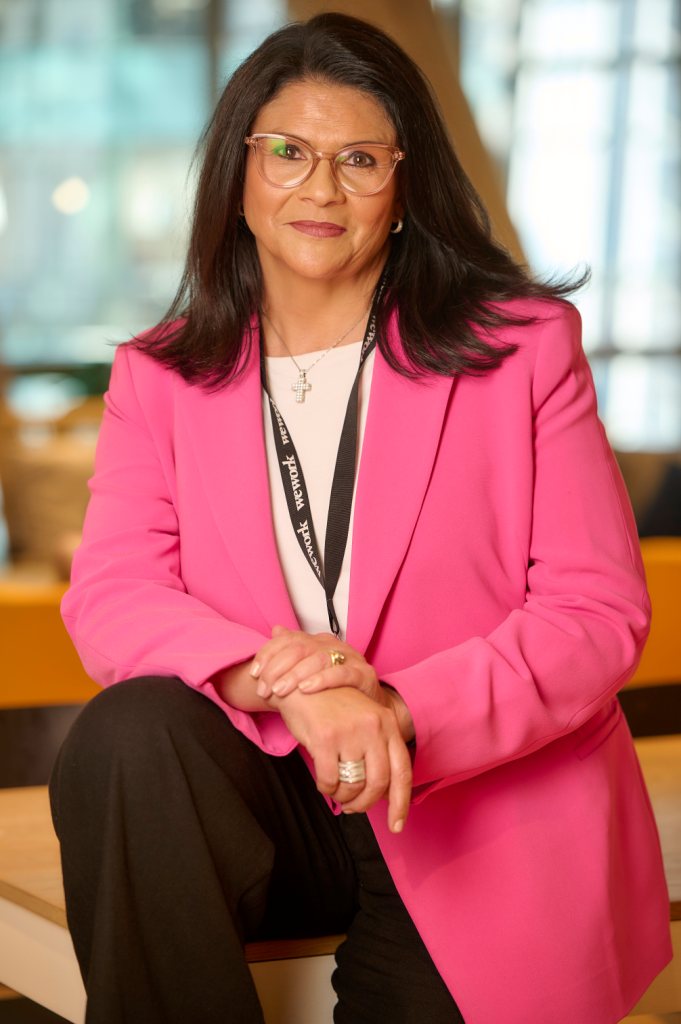
By Ursula Fear
Is AI coming for your job, or is it already working beside you? As its use becomes more routine, artificial intelligence is looking less like a threat and more like a teammate: answering queries, making decisions, chasing leads, processing invoices, and drafting content around the clock.
This new class of digital labour is changing how teams function, how targets are met, and how people spend their time at work. From now on, almost every job, team, and company will involve AI agents – systems that can analyse vast datasets, apply human-like reasoning, and act independently. Their presence is set to influence workflows, increase productivity, support innovation, and redefine roles across the organisation.
Rather than replacing people, AI is tilting the workload. Salesforce research shows that 23% of HR teams plan to redeploy employees into roles that make better use of their uniquely human strengths. At the same time, agentic AI adoption is projected to surge by 327% over the next two years (from roughly 15% adoption today to about 64% by 2027).
This shift is tied to anticipated productivity gains of 30% per employee and labour cost reductions of 19%, equating to about $11,000 in savings per employee annually, based on Organisation for Economic Co-operation and Development (OECD) wage averages. Rather than replacing people, organisations are preparing to reskill and redeploy workers, enabling humans to focus on higher-value roles that emphasise creativity, strategy, and interpersonal skills.
A recent Gartner poll further found that 95% of customer service teams intend to retain human agents to help define and guide the role of AI, reinforcing the value of a “digital first, not digital only” approach. Gartner further says that by 2027, half of the organisations that planned to significantly reduce their customer service workforce will abandon those plans, highlighting the limits of going fully “agentless”.
For African countries, the rise of digital labour presents an opportunity to build modern, inclusive workforces without being bound by outdated development models. But realising this potential depends on sustained investment in skills training, digital infrastructure, and equitable access to AI tools.
Train for tomorrow
Africa has the world’s youngest population. It’s bursting with entrepreneurial energy. But many young people still don’t have access to the tools and skills that will define the next era of work. If the continent wants to lead in the digital labour revolution, it should act now by investing in digital infrastructure, prioritising skills development, and forging partnerships that make future-focused training widely accessible.
Yes, the skills gap is real and broadband internet is still a luxury in many communities. But on the upside, AI training doesn’t require a university degree. Much of it is free, online, and accessible to anyone with a smartphone and a curious mind.
That opens the door to governments, educators, businesses, and civil society to step up to update school curricula, expand digital infrastructure, and support public-private training partnerships. All of this matters: not just for economic growth, but for social inclusion, too.
If these foundations are put in place, African countries could not only meet the needs of their growing population but also leapfrog outdated development models.
From entry-level to in-demand
When AI begins to handle the simpler tasks, it’s easy to worry about what’s left for those starting out. Entry-level jobs aren’t disappearing though. Instead of doing routine work, newcomers will now need to build skills in oversight, collaboration, and using AI tools effectively from day one. The ladder still exists; it just starts in a different place.
This will require a different kind of training – not just technical know-how, but in soft skills like empathy, adaptability, ethical judgement, and communication, which are all human traits that help teams thrive.
AI’s presence in the workplace may be concerning, with reports of job cuts due to its adoption (here), but all is not as it seems.
Research suggests a more balanced perspective: One of the most comprehensive studies, from the National Bureau of Economic Research, tracked 25,000 workers across 7,000 Danish firms using AI chatbots. It found no significant changes to jobs, wages, or working hours. Productivity rose by around 3%, without leading to layoffs.
The St. Louis Fed found something similar. Based on large-scale surveys in the US, researchers reported one in four workers now use generative AI weekly, saving on average just over two hours a week. Spread across the entire labour market, that translated into a 1.1% productivity gain. Crucially, there was no sign this efficiency came at the cost of jobs.
Adding to this, a 2024 study by Mäkelä and Stephany analysed over 12 million US job listings and revealed that demand is surging for “AI-complementary” skills such as resilience, teamwork, digital literacy, and analytical thinking. These are the very human capabilities that help people work effectively with AI. The study found AI-focused roles are nearly twice as likely to list these skills, and they command wage premiums of 5–10%. Even more telling: the positive impact of these complementary skills outweighs the substitution effects of AI by up to 70%.
These findings all suggest that AI isn’t replacing workers; it’s helping them work smarter and more efficiently. To thrive in this blended future, we need to prepare today, by building the right skills, expanding access, and embracing AI not as a threat, but as a partner in progress.
Because the future of work won’t be entirely human, nor entirely automated – it will be a blend of both.
Ursula Fear is the Senior Talent Programme Manager at Salesforce
Feature/OPED
South West Appointment and Projects Favouritism: Fact or Fiction?
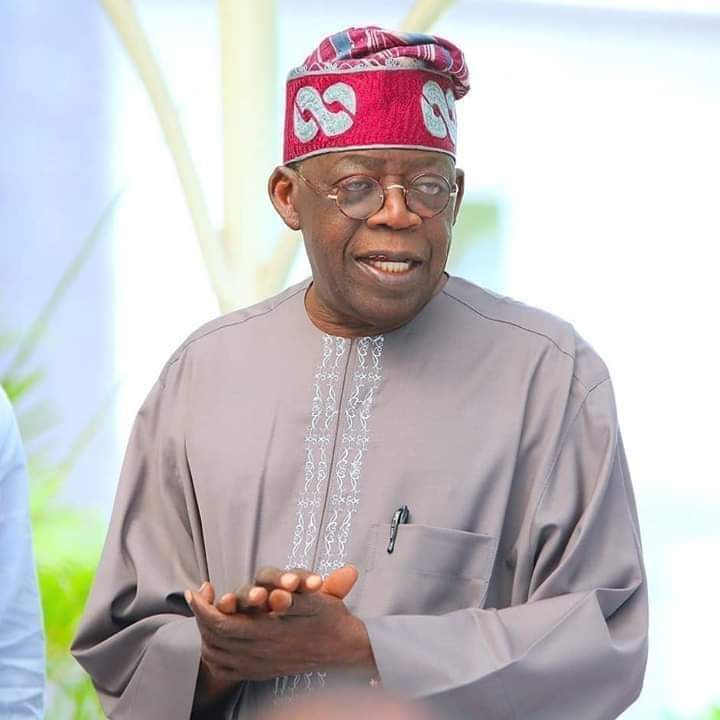
By Abba Dukawa
“It is utterly insensitive for Northern Nigeria’s elite to accuse President Tinubu’s administration of favoring the South-West geopolitical zone. Alleging favoritism towards the South-West, demonstrate a striking lack of sensitivity.
Where were these critics when former President Buhari’s administration faced controversy over alleged favoritism towards the North in appointments? Why they not accused PMB of violating the Federal Character Principle, which ensures balanced representation across regions.
Let’s set the record straight: According to BusinessDay, 81 out of 100 appointees since 2015 were Northerners, including key positions like Chief of Army Staff (Borno, North-East), Chief of Air Staff (North-East), National Security Adviser (North-East), Accountant General (Kano, North-West), and Chairman of the Federal Character Commission (North-East).
SGF (North East) Aviation (North West) AGF (North West) GMD NNPC(North East ) Minister of finance( North West). According to another reports, appointments by geopolitical zone are as follows: North West (51), North Central (47), North East (45), South East (41), South West (45), and South South (45). These figures are currently inconsequential.
Regarding the Northern elite’s claims about imbalance in President Tinubu’s appointments, the issue appears overstated. Instead, the more pressing question is whether they’re diverting attention from the North’s own developmental shortcomings. The region’s progress warrants scrutiny.”
The previous administration, despite having two consecutive terms, left key infrastructure projects unfinished in the north. Notable examples include the Kano-Kaduna-Abuja highway, a crucial North-South link,.
Kano-Maiduguri road project, vital for North West-North East connectivity. Moreover, Aminu Kano International Airport, a major Northern hub, significantly declined under the Northern Minister of Aviation’s supervision, rendering it nearly defunct.
The claim that President Tinubu’s administration favors the South-West in appointments appears baseless, particularly given the North’s experience under previous administrations.
Notably, Tinubu’s administration has appointed 71 individuals from the North and 63 from the South. A breakdown of Southern appointees reveals: South-West (26), South-South (21), and South-East (16). I’m still unclear about the issue – it seems like fiction.
For those overnight champions of Northern interests, have forgotten the unfinished infrastructure projects started by the previous regime, such as the Abuja-Kaduna-kano (AKK) gas project, Mambilla Power Project.
What about the Baro Port project was commissioned by President Muhammadu Buhari on January 19, 2019: Despite its commissioning, the project has remained idle due to a lack of supporting infrastructure, such as access roads and rail connectivity.
The Kano, Daura, and Maradi rail projects, though unfinished under previous administrations, are being continued by the current government. Numerous others projects across the North, left incomplete despite 8 years in power?
President Bola Tinubu’s administration has approved several major projects in Northern Nigeria. Some notable ones include Kolmani Integrated Development Project, continuation of Abuja-Kaduna-Kano Gas Pipeline, Sokoto-Badagry Highway, Kaduna-Kano Rail Line, Kano-Maiduguri Dual Carriageway.
Agriculture Value Chain Initiative to boost agricultural productivity and economic growth. ACReSAL Program a World Bank-funded project aimed at restoring one million hectares of degraded land in the North.Healthcare Projects
Federal Medical Centers*: upgrades and expansions are underway at major facilities, including Ahmadu Bello University Teaching Hospital, Zaria, and Federal Medical Centre, Nguru.
A multimillion dollars oil exploration project located between Bauchi and Gombe states, expected to boost oil production and contribute to national economic growth. The project involves drilling activities, construction of a gas pipeline from Ajaokuta to Kano, and establishment of a Bauchi Oil and Gas Academy.
All these projects demonstrate President Tinubu’s commitment to improving infrastructure, energy, healthcare, and economic development in Northern Nigeria.
Despite numerous appointments and projects in Northern Nigeria, some self-proclaimed regional advocates remain driven by self-interest, claiming underrepresentation. Meanwhile, the appointments have sparked debate, with proponents citing merit and critics alleging their fuel ethnic and regional tensions.”
Dukawa write it from Abuja can be reached at abbahydukawa@gmail.com
-

 Feature/OPED6 years ago
Feature/OPED6 years agoDavos was Different this year
-
Travel/Tourism9 years ago
Lagos Seals Western Lodge Hotel In Ikorodu
-

 Showbiz3 years ago
Showbiz3 years agoEstranged Lover Releases Videos of Empress Njamah Bathing
-

 Banking7 years ago
Banking7 years agoSort Codes of GTBank Branches in Nigeria
-

 Economy2 years ago
Economy2 years agoSubsidy Removal: CNG at N130 Per Litre Cheaper Than Petrol—IPMAN
-

 Banking2 years ago
Banking2 years agoFirst Bank Announces Planned Downtime
-

 Sports2 years ago
Sports2 years agoHighest Paid Nigerian Footballer – How Much Do Nigerian Footballers Earn
-

 Technology5 years ago
Technology5 years agoHow To Link Your MTN, Airtel, Glo, 9mobile Lines to NIN







